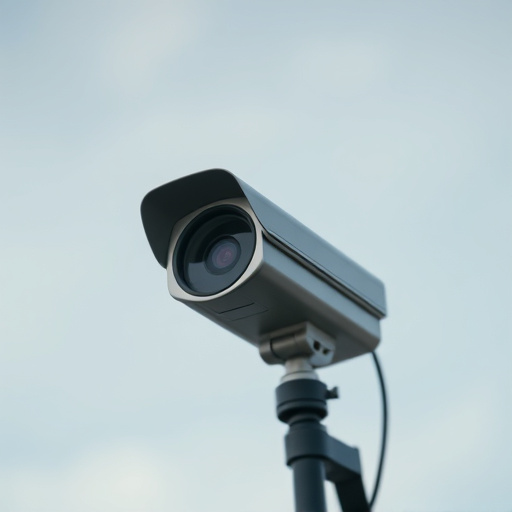Advancements in Spy Camera Artificial Intelligence (AI) integration enable sophisticated detection of hidden cameras in rental properties, balancing security needs with tenant privacy concerns. Landlords must navigate legal complexities, obtain explicit consent, and respect privacy expectations to effectively utilize these technologies while maintaining trust in the rental relationship.
In the digital age, the concept of privacy in rental properties has taken on a new dimension. While landlords seek security solutions, the integration of advanced spy camera systems, powered by artificial intelligence (AI), raises important ethical and legal questions. This article delves into the secret surveillance spots within rental units, exploring AI detection techniques for hidden cameras. We examine the legal gray area surrounding property owners’ rights to monitor tenants while uncovering common concealment spots and the potential risks to privacy.
- Uncovering Hidden Cameras: AI Detection Techniques
- Legal Gray Area: Rental Property Surveillance Rights
- Common Concealment Spots: Your Tenant's Privacy Risks
- Integrating Smart Technology: Advanced Spy Camera Systems
- Ethical Dilemmas: Balancing Security and Privacy Concerns
Uncovering Hidden Cameras: AI Detection Techniques
Uncovering hidden spy cameras in rental properties has become a significant concern with the rise of advanced surveillance technology. Artificial Intelligence (AI) is now playing a pivotal role in this field, offering sophisticated detection techniques to identify these clandestine devices. AI algorithms can analyze live video feeds or recorded footage for suspicious patterns and anomalies that might indicate the presence of hidden cameras.
The integration of Spy Camera Artificial Intelligence allows for continuous monitoring and real-time alerts when potential camera spots are detected. This technology utilizes machine learning models trained on vast datasets to recognize typical camera characteristics, such as irregular objects or unusual lighting conditions often associated with covert surveillance equipment. By leveraging AI, tenants and property managers can proactively ensure their privacy and security in rented spaces.
Legal Gray Area: Rental Property Surveillance Rights
The legal landscape surrounding surveillance in rental properties is a complex and often gray area. While landlords have a legitimate interest in maintaining security and preventing damage, they must tread carefully to avoid crossing into illegal territory. In many jurisdictions, there’s a fine line between ensuring tenant safety and invading privacy, especially when it comes to hidden cameras. The use of spy cameras, often integrated with artificial intelligence for advanced analytics, raises significant concerns about tenants’ rights.
Rental property owners might argue that discreet surveillance is necessary to deter vandalism, track maintenance needs, or even verify the authenticity of tenant information. However, a tenant’s expectation of privacy in their home is well-established legally. Installing hidden cameras without explicit consent can be seen as a violation of this trust and may lead to significant legal repercussions for landlords. It’s crucial for both parties to understand their rights and responsibilities to navigate this delicate balance effectively.
Common Concealment Spots: Your Tenant's Privacy Risks
In today’s digital era, spy cameras integrated with artificial intelligence (AI) technology have become insidious tools for covert surveillance. Landlords and property managers, eager to protect their investments, often hide these devices in seemingly innocuous locations within rental properties. Common concealment spots include inside smoke detectors, electrical outlets, ceiling fans, and even door handles—all easily accessible yet strategically placed to capture sensitive information without raising suspicion.
Tenants’ privacy risks are significant as these hidden cameras can record every move inside the property, from daily routines to confidential conversations. AI-driven analytics can then process this data, potentially compromising personal boundaries and security. It’s crucial for tenants to be vigilant and aware of these possible breaches of privacy, staying informed about their rights, and taking proactive measures to secure their living spaces.
Integrating Smart Technology: Advanced Spy Camera Systems
The integration of Smart Technology in rental properties has brought about an intriguing evolution in surveillance systems. Advanced Spy Camera Systems, powered by Artificial Intelligence (AI), offer a discreet and highly effective monitoring solution. These AI-integrated cameras can be seamlessly incorporated into everyday objects, such as light bulbs or wall sockets, transforming them into silent sentinels.
With AI algorithms analyzing live feeds and detecting unusual activities, these spy camera systems provide landlords with valuable insights into the property’s activity. From identifying unauthorized access to uncovering potential security vulnerabilities, this technology ensures tenants’ safety while empowering landlords with data-driven decisions for better property management.
Ethical Dilemmas: Balancing Security and Privacy Concerns
The integration of spy cameras and artificial intelligence (AI) in rental properties raises significant ethical dilemmas that must be carefully considered. While these technologies can enhance security by detecting unusual activities or ensuring tenant compliance with lease agreements, they also pose substantial privacy concerns. Tenants expect their homes to be private spaces where they can freely conduct their personal lives without constant surveillance. The mere presence of hidden cameras and AI monitoring systems could create an uncomfortable living environment, making tenants feel like they’re under constant watch.
As technology advances, balancing security needs with tenant privacy becomes increasingly complex. Landlords must ensure that any implementation of spy cameras or AI is transparent, justifiable, and proportionate to the potential risks. Clear communication about surveillance measures can help alleviate fears, but it’s crucial to respect tenants’ rights to privacy and only use these powerful tools when absolutely necessary. Striking a delicate balance between security and privacy is essential to maintaining trust in the rental relationship.
In conclusion, while spy cameras have their place in enhancing rental property security, the integration of Smart Technology and Artificial Intelligence brings us face-to-face with ethical dilemmas. Uncovering hidden cameras and navigating the legal gray area surrounding surveillance rights is crucial to balancing security needs with tenant privacy concerns. As we move forward, it’s essential to ensure that any advanced spy camera systems are implemented responsibly, respecting individuals’ personal space and privacy in the digital age.
